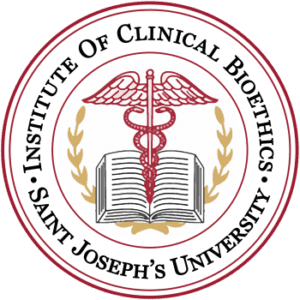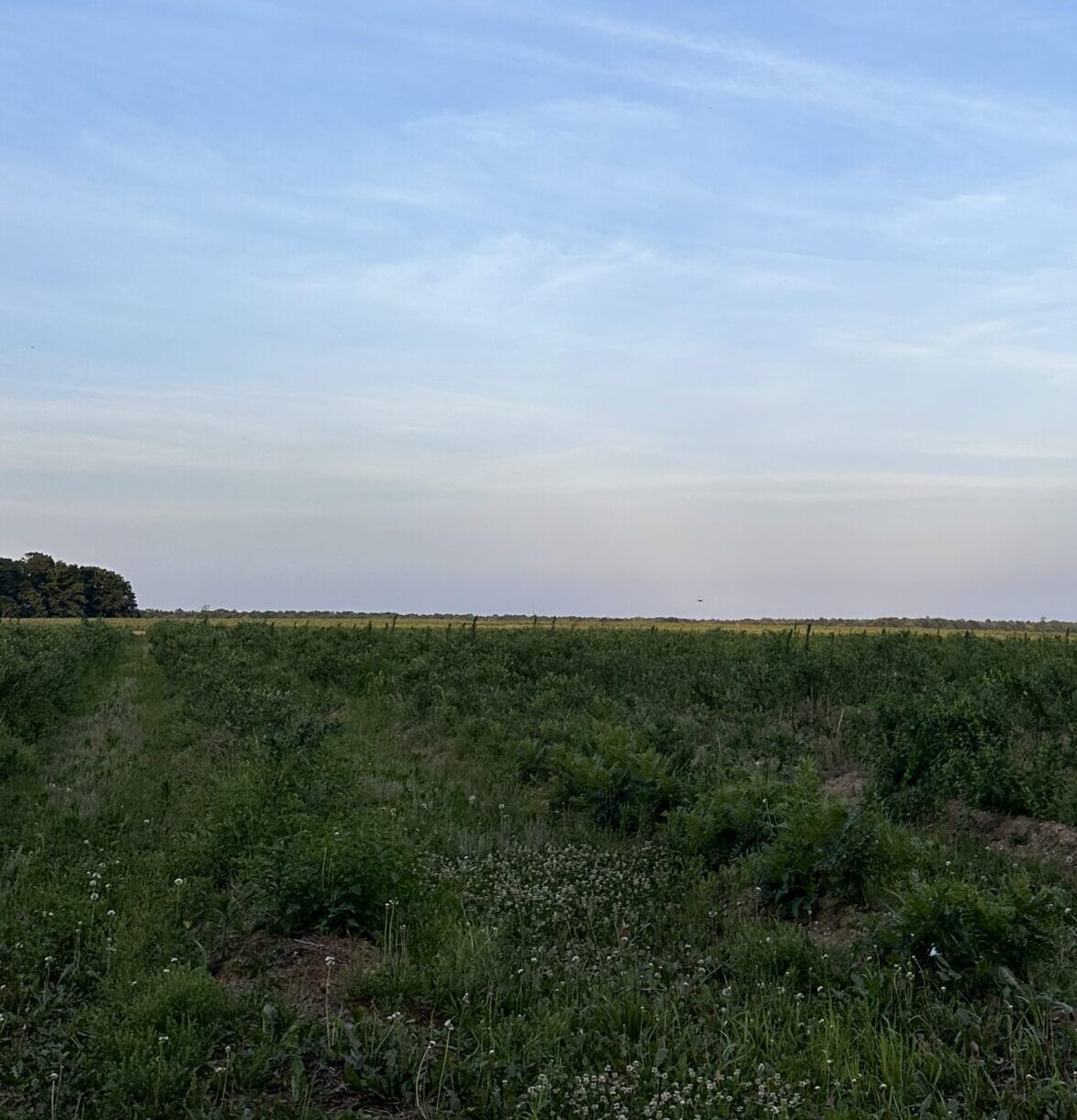In June and July, the Mobile Health Promoter and the Institute of Clinical Bioethics held three clinics in the blueberry fields in Hammonton, New Jersey. These clinics are specifically for migrant farm workers in the area. Fellows Danielle Ray, Fredy Abboud, and Jess Haddad reflected on their first time volunteering at the Mobile Health Promoter this summer.
Danielle Ray (Political Science, ’25)
This June, I had the opportunity to volunteer with the Mobile/Rural Health Promoter team at the migrant worker blueberry fields in Hammonton, New Jersey. At the health promoters, I was responsible for distributing multivitamins, menstrual product packs, and assisting people in finding their power needed for reading glasses. Volunteering at the farms left a large impact on me. I had heard about the Mobile Promoter from other people’s experience, but it wasn’t until I saw the conditions, the size of the farms, and interacted with the people working there that I was able to comprehend and focus on why we were doing these promoters.
For me, the biggest challenge was the language barrier. One of the promoters was mainly Haitian Creole and French speakers, at which I helped to translate. At first I found it difficult to use my academic French to communicate with people. It felt like I was explaining properly and yet they couldn’t understand a word I said. But as I listened and heard them talk with other French speakers there, I saw that the way I was explaining was a lot more complicated than it needed to be. Also, I had to remember that translating is more than just taking what I would say in English and translating it exactly to French. You have to take into account the context of the situation and the different meanings of words across languages. For example, when working with reading glasses, we have people read lines to see which size is the most clear. I would explain “read these lines and tell me which one is the most clear” but the people I would speak to would say they couldn’t or didn’t understand. But when I talked with another translator, they explained that using the verb “to read” was difficult because the lines were in English, so people couldn’t read them. Even if it was just about which one looked more legible, that verb choice didn’t really work for the situation. So I was able to better explain after that conversation about looking for the line that was just the most clear, rather than the most legible. Once I was more thoughtful about how I translated, I found it exciting to communicate with someone across a language barrier and also extremely rewarding to be able to help people in their language.
Overall the health promoters are such a beneficial experience and I loved going to them as I got to meet people from many different cultures, talk to them, and learn about their situations. It also helps us make an impact on a larger part of our community and educates us on how we need to critically think about the health care and employment situations in the United States.
Fredy Abboud (Biology, ’26)
This year’s Mobile Health Promoters at the blueberry farms were undoubtedly the highlight of my 10 months at the ICB so far. Unlike the other health promoters, the clinics at the farms resonated with me because of my background. Having been raised in a third world country, I had never expected to witness families housed under such poor conditions in the U.S. These people are of the most marginalized and underprivileged workers, seeking whatever opportunities they’re offered in hopes of a better future for themselves and their families.
Having had the privilege of overseeing the different stations at the clinic, coordinating with medical residents and students, as well as even serving as a French translator for some of the Haitian workers, I confidently describe this initiative as an exercise in teamwork, commitment, and resilience. It was all a testimony to the bond, trust, and unity the ICB Fellows have developed through their work toward bridging the gap between the underserved and access to proper health care.
Aside from the clinical experience, the farm workers’ welcoming attitude, cooperation, and appreciation for the work we were doing set the tone of what a physician-patient fiduciary relationship looks like: cooperation for the sake of the patient’s health and well-being. The Mobile Health Promoters further solidified to me that health care is not a privilege but a right.
Jess Haddad (Biology, ’26)
In the past two weeks, I volunteered alongside my fellow students at two different blueberry farms in the town of Hammonton, New Jersey.. The town of Hammonton was close enough for me to make such connections, yet far enough for me to be astonished by the living conditions I saw in the blueberry fields for the first time. Both of the Hispanic and Haitian populations living in both these farms were not fortunate enough to receive legitimate healthcare information and supplies due to their living circumstances. The latter of the two promoters surrounded me with Haitians, who could only speak Creole. Although I grew up in a household that spoke two languages other than English, I never thought I would actually put them to use due to my surroundings and my career path. What caught me by surprise was that even though French and Haitian Creole are both recognized as official languages in the country, only Haitian Creole is shared by all Haitians. Speaking French to the people at the blueberry farms facilitated trust-building and communication with patients to help provide basic healthcare for no cost.
My heart broke hearing that patients could not afford to take care of their mental and physical health. I considered expanding my language past medical terminology to include more casual phrases. I asked about their day and made jokes about the weather and received smiles in response. These encounters demonstrated the value of language and how it encourages a better understanding between patients and healthcare providers. It also opened up my perspective on how to approach situations dealing with mental health. These one-on-one French conversations left a significant impact on both the people I aided and myself.

